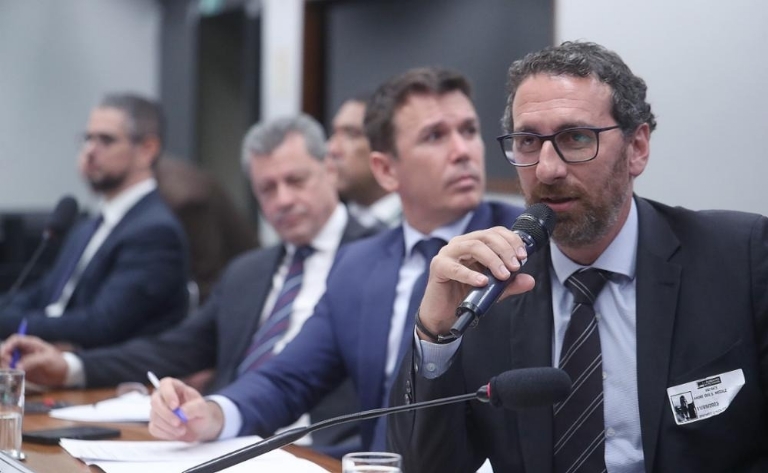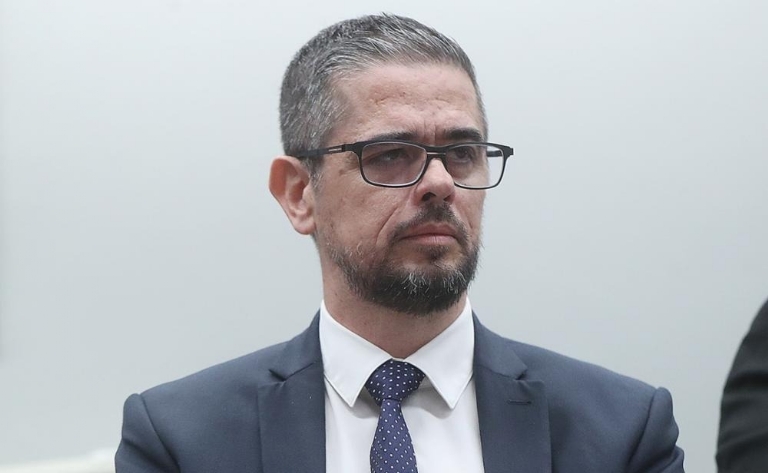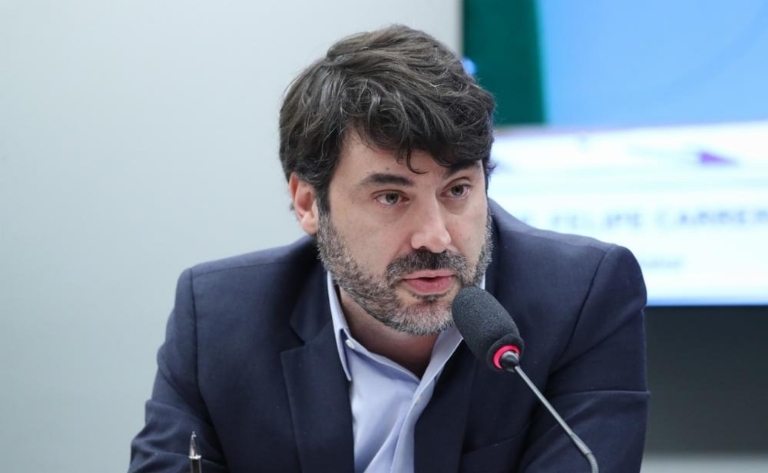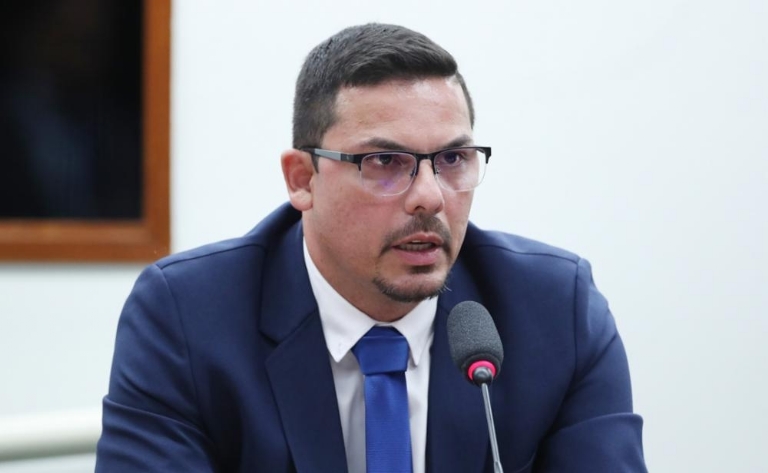

The long-awaited statement from the president of the Brazilian Football Confederation, Ednaldo Rodrigues, did not happen. The director explained it because he was out of the country, following the start of the World Cup qualifiers. Thus, the the Parliamentary Commission of Investigation (CPI) into match-fixing agreed with the director so that he appears to provide the expected clarifications next week.
Thus, former CBF directors André Megale (governance and compliance) and Gilnei Botrel (finance), testified, as guests, to explain how they followed up on reports of manipulation of results in recent years and whether the entity took measures to combat the practice.
André Megale highlighted that the CBF adopted all the procedures determined by FIFA from 2017 onwards to create the governance and compliance area, in order to “rescue the credibility of Brazilian football vis-à-vis international football”, as the country was the subject of numerous denunciations during the presidency of Marco Polo del Nero.

As a result, a new code of ethics was implemented, designed to conduct investigations in a confidential manner, preserving whistleblowers and those accused until the completion of each work.
Regarding sports betting, he explained that this area did not belong to the governance board, but that a few years ago the CBF already had a contract with Sportradar to monitor bets with sportsbooks.
Sportradar reports
Felipe Carreras, CPI rapporteur, asked Megale about what measures were implemented to ensure that the CBF was in compliance with regulations and laws related to integrity in sport. He also asked whether he received reports from Sportradar regarding signs of match-fixing.
The former director of governance said that the CBF carried out internal governance certification audits to identify any non-compliance, carried out by the entity's legal department. According to him, the hiring procedure regarding the relationship with Sportradar was carried out by the competitions department.
He confirmed that the CBF received reports from Sportradar, but intended for the competition area and that, for this reason, it did not fall under the governance board, as it was not foreseen in the entity's internal flow.
“I understand that it would be serious if the entity did not play this relevant role of taking care of the integrity of its matches. It hired Sportradar and determined a flow for this,” he clarified to say that he did not reach the governance area due to the procedure adopted by the CBF. “This debate must be carried out with the competitions area,” he exempted himself from the role of monitoring such evidence and procedures for investigating and combating result manipulation.
Technical position
Then, Gilnei Botrel made his presentation, highlighting that in his role as financial director, he had a “strictly technical role. All acquisition contracts have a rigorous flow and demand for the related area.”
He was responsible for controlling cash flow, trying to analyze how much CBF invests in Brazilian football, “as well as the basic objective of controlling the flow of receipts and payments,” making himself available for further clarification.

Felipe Carreras asked “how the financial department allocated financial resources to deal with integrity issues, specifically in relation to allegations of match-fixing in sports betting.” He continued: “What investments were made in implementing measures to prevent match-fixing and combat illegal betting activities in Brazilian football?”
Botrel stated that the CBF hired Sportradar in 2017 to operate in Series A and B, as well as for the Copa do Brasil, “having been extended to other competitions”. According to him, “the entity spares no effort to increasingly qualify its arbitration. The CBF always made all efforts to offer referees the best tools to act on the pitch, which would be a way to mitigate the manipulation of results.”
He also stated that he was not aware of any practice of match-fixing in football.
The former director of the CBF commented that among the actions to guarantee the integrity of the process is the hiring of psychologists to improve the arbitration, in addition to the hiring of Sportradar, a company accredited by FIFA and Conmebol.
Likewise, the former directors were unable to provide further clarification on contracts currently in force, both in relation to Sportradar and Brax, which holds broadcasting and advertising rights on the field.
Integrity
Finally, Júlio Avellar, director of competitions at the CBF, provided his clarifications presenting a video about the importance of combating match-fixing, and also highlighted that “the practice is very serious and I have been working for many years with the integrity of the sport.”

According to him, the CBF signed an unprecedented cooperation with FIFA. “Today, CBF is the only entity that has a project office within FIFA. We have more than 100 initiatives under development to modernize Brazilian football, including combating match-fixing,” he highlighted.
Avelar also commented on the importance of Sportradar's offer in combating match manipulation, which serves the CBF. Not to mention the partnership with the company, which even during the period without a contract, continued to provide services to the entity.
The work of the monitoring company, according to the CBF director, is presented in the form of reports. “It is a constant work of improvement and Sportradar has even improved the language, facts and information to provide better support for the entities that receive such reports,” he explained.
He also highlighted that, as necessary, the CBF requests and receives more information in each situation in which suspected manipulation of results is identified.
In addition to the “productive” way of working, in his assessment, Avelar pointed out details of CBF regulations regarding the manipulation of results in all championships. “And it was, for example, the procedure that was carried out by the CBF after the STJD judgment, to extend the sentences to players convicted of manipulating results,” he highlighted.
According to the CBF competitions director, the entity is united with the SIGA alliance, which adopts universal integrity standards and the entity's international certification processes, in order to curb the practice of manipulating results and publicize suspicions globally, saying that “it is a commitment from the management of our president Ednaldo Rodrigues.”

At the end, Rômulo Reis, former director of integrity at CBF, clarified that the entity did not have a directorate in the area, but that he took over as integrity officer. “To date, this function does not exist, but the entity is attentive to this issue and seeks, together with FIFA, to combat all attempts at fraud.”
According to him, “there is nothing against bookmakers. Result manipulation is bad for bookmakers. It causes harm to competition and weakens the bookmaker's advertising, not to mention the financial loss to betting operators.”
Source: GMB